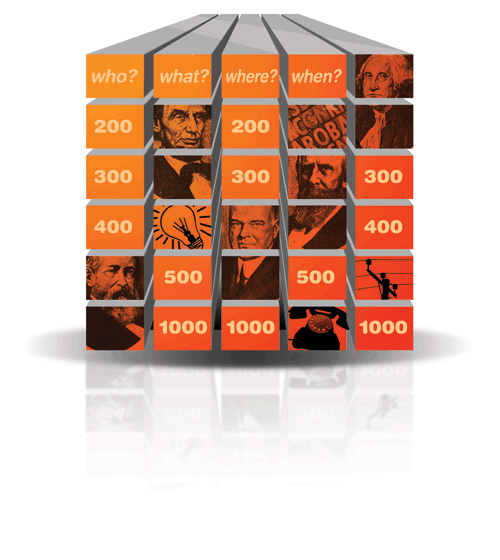The President of the United States sets the tone for many things: from fashions, to foods, to sports, to national attitudes. He is also the indicator that a technology, that the electronics that you create and that we all use, is truly useful. If you have been following what I write on electronicproducts.com of late, you have noticed that I can't write enough about the Presidents and technology. I have a lifelong love of reading about the Presidents; everything I know about American history is tied to a Presidential administration. If you were on a game show that had a phone-a-friend lifeline, you might well want me as that lifeline.
The germ for this current interest in Presidents and technology was the four-year-old story that President-elect Obama wanted to keep his BlackBerry — a story in The Los Angeles Times called it “his beloved device” ( latimesblogs.latimes.com/technology/2009/01/obama-to-get-se.html). The President's insistence indicated that a smartphone had become a part of his daily life — and ours. Likewise the President, like all other candidates, uses e-mail and websites routinely — witness him recently taking questions on the social media site reddit.com.
Other Presidents through the years had similar reliance on what had become useful technology. I don't want this Viewpoint to be political, to take sides, but rather be something of a game show. So let me ask questions and give answers. This game could be just like Who Wants to Be a Millionaire or Jeopardy . Take your pick.

Who was the first President to have a copier? Sort of a trick question, because I don't mean an electronic copier. The answer is George Washington (President 1; when you see a number in parentheses it's the number of the Presidential administration, which typically lasts at least 4 years; we've had 43 Presidents, but 44 administrations because Grover Cleveland was both President 22 and 24). Copies of documents were always necessary, so Washington had a letterpress. Not to be outdone, Thomas Jefferson (3) had a dual-pen device that allowed him to write in duplicate.
Which President was addicted to T-mail? Abraham Lincoln (16) ran the Civil War with telegrams. The telegraph was demonstrated by Samuel F.B. Morse in 1844 when James Polk (11) was President, but like all technology, needed to spread sufficiently to be useful. Like Obama appreciating the BlackBerry, Lincoln understood the potential of telegrams. Of course, as Obama's BlackBerry needs encryption, so did Lincoln's telegrams.
Why did it take 50 years for the telephone to land on the President's desk? Rutherford B. Hayes (19) was President right after the telephone was invented in 1876, but there were only two phones in Washington, his and the Treasury Department's. Subsequent Presidents had a phone, but in a phone booth. The first President to put a phone on his desk was Herbert Hoover (31) in 1929.
All sorts of technology had to be added to the phone: It had to stop being a party line where other users could listen in on conversations. It needed a switch. It needed lots of users. Like emerging technology today, it needed to be made truly useful.
Which President feared electricity so much that he slept with the lights on? That was the President in the middle of Cleveland's terms: Benjamin Harrison (23). In 1889, only 10 years after Thomas Edison invented the light bulb, electricity was installed in the White House. The electricity was the direct-current type. Massive batteries were installed on the White House grounds with enough power to shock the President when he touched a light switch. He and his family decided to leave touching the power switches to the servants, and if they weren't around, why, they slept with the lights on.
These are just some examples. We could talk about radio, television, computers, and more. Technology does not emerge overnight. It takes time, actually lots of time, before it is accepted in daily life. Look at any technology and discover that it may be decades in the planning and then years more in the accepting. But when the President gets it, when he's not shocked by it, it has arrived.
Len Schiefer
Advertisement
Learn more about Electronic Products Magazine





